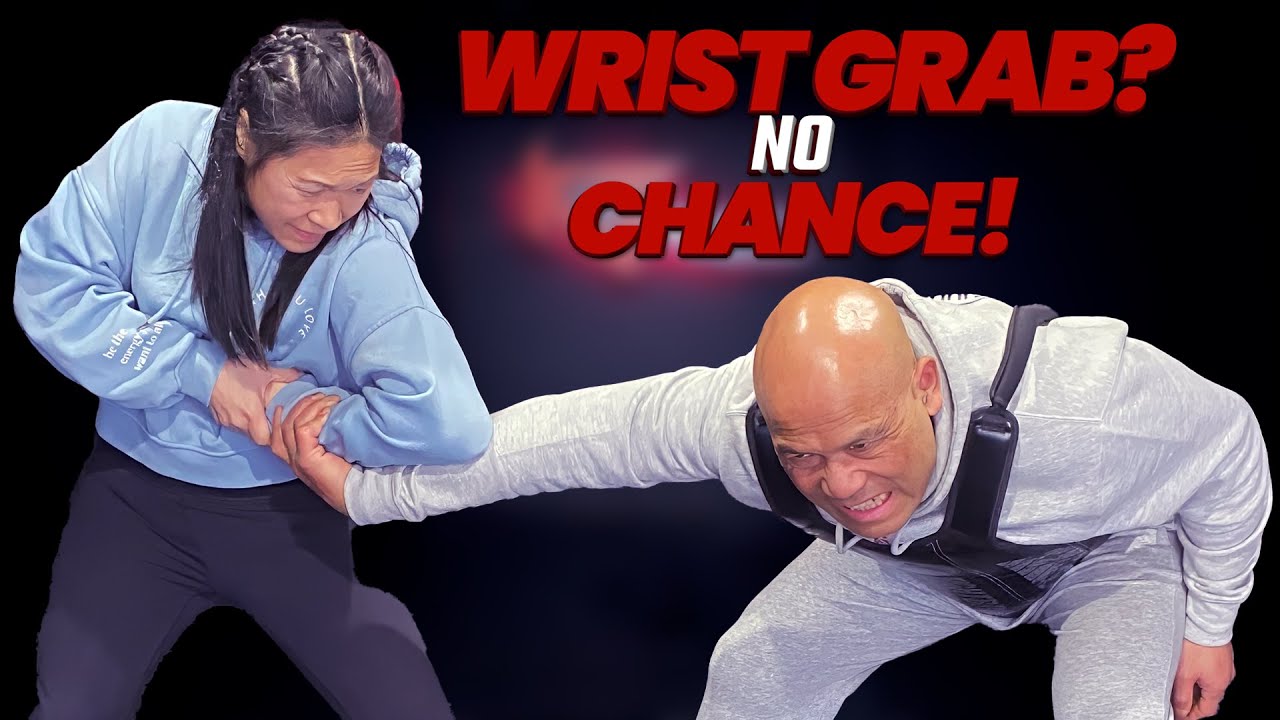Womens Self Defense
Non-lethal Weapons: How Laws Are Shaping Their Use

Non-lethal weapons have become an increasingly important topic in discussions about law enforcement and military tactics. These weapons are designed to incapacitate targets without causing permanent harm or death. While they can be useful in certain situations, their use raises ethical and legal questions that often vary between countries.
In the United States, non-lethal weapons like pepper spray, stun guns, and bean bag rounds are commonly used by law enforcement officers. However, the use of these tools is not without controversy. Critics argue that these weapons can still cause serious injuries or even death, especially if used improperly. In recent years, there have been calls for stricter regulations on the use of non-lethal weapons in police work.
Several high-profile cases of police brutality have brought this issue to the forefront. In response, some states have implemented laws that restrict the use of certain non-lethal weapons, such as tear gas or rubber bullets, in certain situations. Additionally, training programs for law enforcement officers have been updated to emphasize the importance of de-escalation techniques and proper use of non-lethal weapons.
Internationally, the use of non-lethal weapons is also governed by various laws and regulations. The United Nations has issued guidelines on the use of force, including non-lethal weapons, in peacekeeping missions. These guidelines stress the importance of proportionality and restraint when using force, and call for accountability and transparency in the use of non-lethal weapons.
In some countries, the use of non-lethal weapons is strictly regulated or even banned altogether. For example, the use of tear gas is prohibited in warfare under the Chemical Weapons Convention. Similarly, the use of pepper spray is prohibited in countries like Denmark and Norway, except in certain situations.
Overall, the use of non-lethal weapons is a complex issue that requires careful consideration of ethical and legal implications. While these weapons can be a valuable tool for law enforcement and military personnel, their use must be governed by clear guidelines and regulations to ensure the safety and well-being of all individuals involved. As laws continue to evolve in response to changing circumstances, it is essential that policymakers and law enforcement agencies stay informed and up-to-date on best practices for the use of non-lethal weapons.
Womens Self Defense
Maximizing Your Safety: The Benefits of Realistic Self-Defense Techniques
Absolutely! I’m Jade Tripp, and I’m excited to share important insights on women’s self-defense and personal protection. Let’s dive into our topic!
Empowering Women Through Self-Defense: Your Path to Safety and Confidence
Introduction
Hello, ladies! Today, I want to talk about something that’s crucial for each of us: self-defense. It’s more than just learning how to throw a punch; it’s about building confidence, awareness, and the ability to protect ourselves in any situation. The more we understand our own strength, the more empowered we become.
Why Self-Defense?
Self-defense isn’t just about physical prowess; it’s about having the right mindset. According to a report from the Department of Justice, women are significantly more likely to experience certain types of violence, highlighting the importance of knowing how to protect ourselves. This isn’t to instill fear; rather, it’s to empower us.
Understanding Situational Awareness
A primary component of self-defense is situational awareness. Being aware of your surroundings can help you avoid dangerous situations altogether. Always pay attention to the people around you—are they acting in a way that’s concerning? Maybe you’re walking home after a late class at your university, like Sarah, who always scans her environment instead of being glued to her phone. It’s simple yet incredibly effective.
Example: Sarah’s Night Out
After a long study session at her local library, Sarah decided to take a walk back to her dorm. Instead of wearing headphones and immersing herself in music, she chose to stay alert. As she approached a dimly lit path, she noticed a group of people loitering. Sarah opted for a well-lit alternative route, ensuring she remained in a safe and visible area.
Basic Self-Defense Techniques
While situational awareness can help prevent dangerous encounters, it’s essential to know how to respond if you find yourself in one. Here are a few self-defense techniques every woman should know:
-
Target Vulnerable Areas: If you’re ever in a situation where you need to defend yourself, aim for sensitive areas such as the eyes, nose, throat, or groin. A quick jab to the eyes or a push to the throat can give you enough time to escape.
-
Use Your Voice: Don’t underestimate the power of a loud voice. Yelling can draw attention and potentially scare off an attacker. Don’t hold back; shout “HELP!” or “BACK OFF!” to attract attention.
- Practice Physical Techniques: Attend a self-defense class in your area—look for programs like Krav Maga or even local martial arts studios offering women-specific training. For instance, the Rape Aggression Defense (RAD) program is widely available and focuses on realistic scenarios.
Example: A Success Story
Consider the story of Anna, who was attending a self-defense seminar. During a hands-on exercise, she practiced the techniques of palm strikes and elbow jabs. Months later, when an aggressive stranger approached her at a bus stop, she used those techniques to create distance and escape. Anna not only defended herself but also inspired her friends to take self-defense classes, fostering a community of empowerment.
Building Confidence and Community
Self-defense isn’t just an individual effort; it’s also about community. Join local classes or groups where you can share experiences and learn together. Surrounding yourself with like-minded women creates a support network, making the journey more enjoyable and effective.
Example: Community Workshops
Many community centers host workshops focused on women’s self-defense. Check out groups like "Women’s Empowerment Network" or your local YMCA for resources. When you learn together, you build camaraderie, share stories, and bolster each other’s confidence.
Conclusion
Remember, being proactive about your safety is not just a responsibility; it’s an empowering journey. Take the time to learn, practice, and engage with your surroundings. You are stronger than you think, and you have every right to feel safe and confident in your daily life.
So, ladies, get out there, take a self-defense class, and start empowering yourself and those around you. You never know how your actions today can inspire others tomorrow!
Stay safe and confident! 🥋💪✨
Womens Self Defense
Navigating Implied Threat Laws: What Employers Need to Know

In today’s ever-evolving workplace landscape, employers face a myriad of challenges when it comes to workplace safety and employee relations. One increasingly critical area is the understanding of implied threat laws. These laws are designed to protect individuals from threats of violence, whether explicit or implicit, and they hold significant implications for employers. Here’s a comprehensive guide to help employers navigate this complex terrain.
Understanding Implied Threats
Implied threats are situations where an individual’s words or actions suggest a possibility of violence or harm, even if no direct threat has been made. These can be subtle gestures, tone of voice, or contextual situations that indicate an intention to cause harm. In the workplace, implied threats can arise in various forms, including aggressive emails, disruptive behavior, or hostile interactions among employees.
Legal Framework
The legal landscape surrounding implied threats varies by jurisdiction, but generally, it falls under workplace violence prevention laws, harassment laws, and employee rights regulations. Key points to consider include:
1. Workplace Violence Prevention
Many states have laws requiring employers to take reasonable steps to prevent workplace violence. This includes developing a workplace violence prevention plan that addresses potential threats and outlining procedures for reporting and responding to incidents.
2. Anti-Harassment Laws
Employers must also be aware of federal and state anti-harassment laws. Implied threats can often be classified under harassment, which can lead to legal liability if not properly addressed. This includes acts that create a hostile work environment and can be perceived as intimidating or threatening.
3. Duty to Warn
Some jurisdictions impose a “duty to warn” standard, where employers may be required to disclose potential threats to the parties that could be affected. This duty relies heavily on the nature of the implied threat and the context surrounding it.
Identifying Implied Threats
Recognizing implied threats is crucial. Employers should train management and HR personnel to identify behaviors that may indicate potential risks, such as:
- Aggressive Communication: Emails or conversations that convey anger, frustration, or hostility.
- Physical Cues: Body language that suggests aggression, such as clenched fists, invading personal space, or erratic movements.
- Behavioral Changes: Sudden shifts in an employee’s behavior, particularly if they become withdrawn or overly emotional.
Responding to Implied Threats
Once a potential implied threat is identified, it’s vital to handle it appropriately. Here are steps employers should take:
1. Investigate Promptly
Employers should take implied threats seriously and respond quickly. Conducting a thorough investigation helps establish facts, ensuring that decisions are made based on evidence rather than assumptions.
2. Maintain Confidentiality
While it’s essential to address implied threats, employers must also respect the privacy of all parties involved. Confidentiality helps build trust within the workplace and encourages employees to report concerns without fear of retaliation.
3. Implement Conflict Resolution Strategies
Offering conflict resolution resources, such as mediation or counseling services, can help mitigate potential tensions. Encouraging open communication can also prevent claims from escalating into more serious situations.
4. Develop Clear Policies
Creating written policies that outline acceptable behavior and procedures for addressing implied threats can provide clarity and guidance for all employees. Ensure that these policies are communicated effectively and that employees are trained on how to recognize and report threats.
Employee Training and Awareness
Regular training sessions are essential for fostering a safe workplace environment. Training should cover:
- Recognizing the signs of implied threats.
- The importance of reporting concerns immediately.
- Understanding company policies regarding workplace behavior and violence prevention.
Conclusion
Navigating the realm of implied threat laws is essential for fostering a safe and productive workplace. By understanding the legal implications, recognizing concerning behaviors, and establishing clear policies and training programs, employers can create an environment where employees feel secure. Proactive management of implied threats not only protects employees but also shields organizations from potential legal ramifications. In a world where awareness of safety and mental health is more critical than ever, taking these steps can lead to a happier, healthier workplace for everyone.
Womens Self Defense
Women’s Self-Defense: The Wrist Grab Escape You MUST Know

Women’s Self-Defense: Escape ANY Wrist Grab in Seconds! Every woman deserves to feel SAFE. Every woman deserves to feel …
source
-

 Womens Self Defense10 months ago
Womens Self Defense10 months agoNew Legislation Empowers Women to Defend Themselves
-

 Self Defense News1 year ago
Self Defense News1 year agoShe was convicted of killing her abusive boyfriend. Now a Maple Grove woman is home awaiting a new trial.
-

 Self Defense News1 year ago
Self Defense News1 year agoSelf-Defense for All: The new Gracie Jiu-Jitsu Pasadena is for everyone | Online Features
-

 Womens Self Defense1 year ago
Womens Self Defense1 year agoTop 5 Self-Defense Techniques Every Woman Should Know
-

 Womens Fitness1 year ago
Womens Fitness1 year agoXtreme Bodyweight HIIT (Lots of Jumping!) | Joanna Soh (Fio Series)
-

 Womens Self Defense7 months ago
Womens Self Defense7 months agoUnderstanding State-by-State Variation in Self Defense Laws
-

 Womens Preparedness1 year ago
Womens Preparedness1 year agoThe Importance of Self-Sufficiency Skills in Today’s World
-

 Womens Preparedness1 year ago
Womens Preparedness1 year agoEmpower Yourself: A Guide to Female Survival Planning





